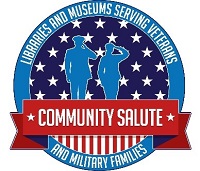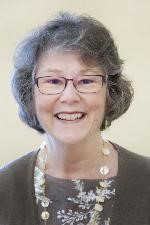Blog Posts | November 10, 2016
Share This
Editor’s Note: In September, IMLS announced a cooperative agreement with FSG to strengthen the ability of libraries and museums to fulfill the unique and critical needs of veterans and military families. Through the Community Salute program, IMLS will gather information from a variety of key stakeholders in the library, museum, and military communities; identify opportunities for enhancing community services; and develop frameworks, tools, and resources to strengthen the role libraries and museums have in addressing the specific needs of veterans and military families. This is the latest in a series of Community Salute blogs highlighting the role that many libraries and museums already play in the lives of veterans and military families.
By Carroll W. Wilkinson
West Virginia University Libraries
Once upon a time there was a university library that didn’t have a program of outreach to student veterans, though many other efforts on behalf of students existed. Then that library system hired a new dean, and his wife was a veteran. He wanted to have an outreach program for the student veterans in his new community to, in part, honor his wife’s military service, but also to foster understanding of the libraries’ role in academic success. So he had a word with the libraries’ director of strategic library initiatives. She, in turn, talked with the campus director of veteran affairs and he told her about the IMLS SPARKS grants and recommended the program. So the library director, with the help of the student affairs’ grant writer, initiated an application which turned out to be successful. The West Virginia University Libraries’ Veteran Outreach Program (WVUL-VOP) was born, and slowly began operation in October, 2015.
In the first year, we opened a room for student veterans and their tutors in the STEM disciplines; we identified both graduate and undergraduate student veterans to work with the program; we designed and conducted a survey to find out what the student veterans already knew about the libraries and what else they wanted to know; we offered an open house for student veterans to get to know the staff and services not only in the libraries but also in the community at large; and we developed an effective connection with the campus community of student veterans and veteran advocates. Through it all, community building with the veterans themselves has proven to be the most rewarding and important work we are doing so far.
We have created space for a Veteran Tutoring and Study Room, made a customized Resource Guide for Student Veterans, and expanded our Libraries’ web page to include pages specifically targeted to student veteran interests.
The student veteran web pages (last link above) include video interviews with current students who talk about their military experiences, their transition to academic life at the university, and their experiences with the University Libraries. We have found that at first they think they haven’t had any experience using the libraries. But with interview probing we find that many of them actually have stopped by for coffee, booked a study room for a group session, or discovered our renovated reading rooms with deep quiet zones. We are sharing these testimonials through social media to student veterans with the intention of inspiring others to follow their lead and come explore what we have developed.
All the student veterans interviewed comment on the libraries. For example, Specialist Ryan Badmaev (Class of 2018) said, “I think there are a lot of people who still think libraries are just a bunch of books. They forget that the libraries have a whole different side to them. All these things are online and they have laptops, cameras, media equipment. Tons of stuff. I think when new students come to campus they should come to the libraries and look around. These librarians love to talk about this stuff. So just come in and ask about it!”
Another student veteran and graduate student, Captain Augustine Kim commented, “Just from talking to library staff in the Dean’s Office of Strategic Library Initiatives, I know they are coming up with some very exciting programs to expand services to student veterans at WVU. The library is the focal point of knowledge, of information, of resources. You couldn’t separate the Libraries from student academic success; that’s where the resources are held.”
Our goal is to use the current student veterans’ real experience with the Libraries’ services and resources to inform incoming students of opportunities available, including use of learning spaces, cafes, study rooms, art exhibits, online help with electronic reserves and other e-resources, anonymous chat with a librarian about an assignment, and remote access to databases. Working toward this goal and expanding it to include a broader scope of awareness of library strengths among student veterans will continue through September 2017, since we have been approved for a one year, no cost extension of our IMLS SPARKS grant.
To sum up, it is comfort in and confidence with the libraries that we aim for among the growing cadre of student veterans on campus. We want to increase student veteran ease using the libraries, and grow their confidence in the libraries as meaningful and relevant assets to support their needs and foster their success as they complete their academic programs.

About the Author
Since September 15, 2014, Carroll Wetzel Wilkinson has served as the Director of Library Strategic Initiatives at West Virginia University Libraries in Morgantown. She received the IMLS SPARKS Grant in September 2015 to create an outreach program to student veterans at her university library system.
